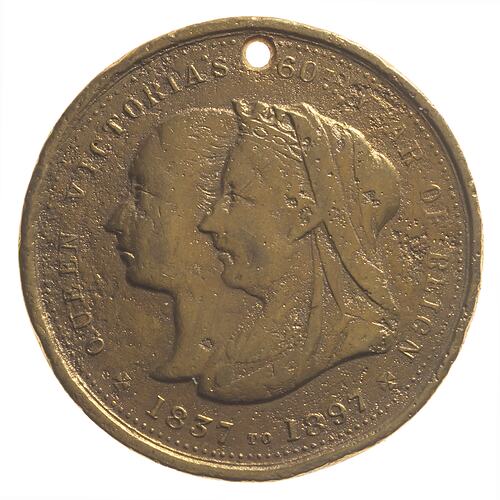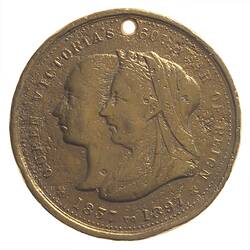Robert Harper was born in 1842 in Glasgow, Scotland. In 1856 he migrated to Australia with his family, and began working for J.F. Mackenzie & Co., roasting and grinding millers, and by 1863 was a partner in the company. When the partnership dissolved two years later he established Robert Harper and Co., trading in tea, coffee and spices from the East Indies. The business prospered, and by the 1870s Harper was a leading Melbourne merchant. By the early 1880s two of his brothers became partners, and branches of the business were established in other colonies. Harper also diversified, investing in banking, land, sugar and coal. Regarded as one of the most astute business people of his time, his interests remained intact during the devastating collapses of the early 1890s. He served as director of several companies and the Commercial Bank of Australia, and owned a sheep station in Gippsland.
Harper married Jane Ballingall in 1868, they had seven children. Jane became a prominent Melbourne philanthropist. Harper was founder of the Toorak Presbyterian Church and its senior elder, his firm religious beliefs guided his business and social dealings. In 1879, alarmed at the radical Berry government, he contested a by-election for the Legislative Assembly seat of West Bourke - he had a country house at Mount Macedon and was shire councillor there. He was narrowly defeated by his opponent, Alfred Deakin, but a dispute about irregularities at one polling booth saw Deakin resign and another election held, which Harper won. The following February he again defeated Deakin, but the outcome was reversed the following August. In 1882 Harper won the seat of East Bourke, which he held until 1889.
Re-elected to East Bourke in 1891, Harper became a leading member among Melbourne merchants who founded the National Association of Victoria that year. These men were determined to unify non-Labor groups and resist 'class politics'.
In 1897, as the member for East Bourke, Happer issued a medal for Queen Victoria's Diamond Jubilee (NU 20446); however he was defeated in the election not long afterwards. In 1901 he won the seat of Mernda in the House of Representatives, which he held in three future elections. He retained his conservative views, believing that people were not equal and that enterprise and industry should be rewarded with special privileges, although he was now a protectionist and a follower of Deakin.
Harper retired from parliament in 1913 and died at his home in South Yarra in 1919. He was survived by his wife, one of his two daughters and four of his five sons.
References:
Australian Dictionary of Biography.
More Information
-
Keywords
-
Localities
-
Authors
-
Article types

